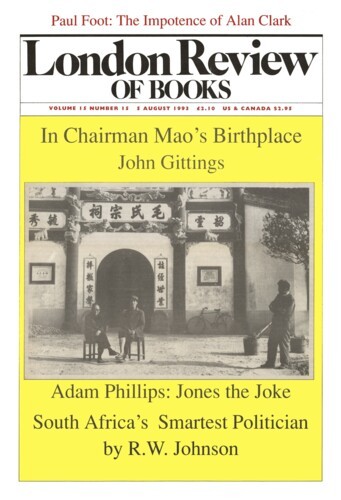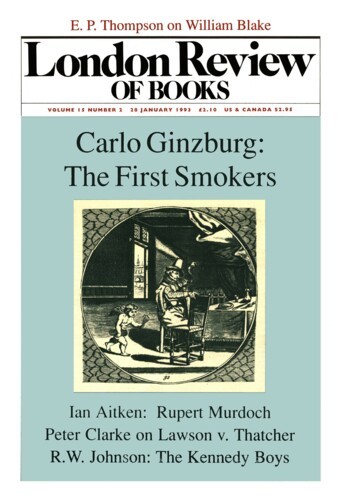Gospel Truth: Tony Benn and the end of parliamentary socialism
Ian Aitken, 19 February 1998
Just over a quarter of a century ago, shortly after Ted Heath’s surprise defeat of the Wilson Government, Tony Benn addressed a Fabian Society meeting in a gloomy Westminster basement. With his usual happy choice of language, he described how fired-up he had been on eventually becoming a minister in Wilson’s Cabinet; he had always wanted to get his hands on the levers of power, he said, and at last he was going to do just that. And sure enough, when he walked into his office at the Ministry of Technology for the first time, there they were in all their gleaming majesty – the levers of power. With a glad cry, he had leapt forward and started tugging at them in a frenzy of pent-up enthusiasm. It was quite a long time before he realised that, however hard he pulled, nothing actually happened. It was even longer before he discovered that the levers weren’t actually connected to anything.’





